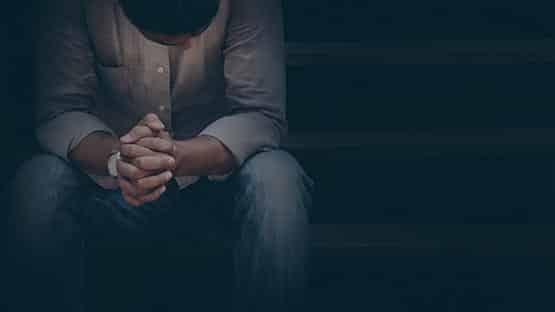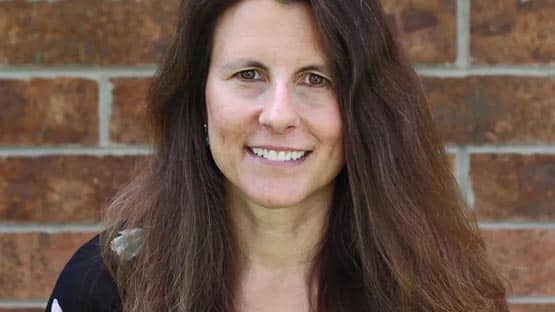
Alleged UVA triple-murderer Chris Jones clearly slipped through the mental-health system. His family knew he was struggling. In his own raps that have been uncovered since the tragedy that killed three UVA football players, he admitted to having mental health problems.
However, by all accounts, Jones, never got the help that he may have needed to prevent these senseless deaths.
Was it because he is Black? Or because he is male? Or is it a bigger issue about access to healthcare, racism and disparity in the healthcare system, or even, gun policies in the U.S.? It’s possible all or none are to blame.
Mental health professional Stacey Freedenthal, PhD, LCSW, is an associate professor at the University of Denver Graduate School of Social Work, psychotherapist and consultant. She did her doctoral dissertation on help seeking by adolescents in crisis. The main finding was that Black and Hispanic adolescents were much less likely than White adolescents to get help when in a mental-health crisis.
There are various theories for this, according to Freedenthal.
”One is racism. There’s been so much racism in the medical system, historically, and even still today,” said Freedenthal. “A lot of Black people and other people of color don’t trust the mental health system.”
Another issue – clinicians are disproportionately white.
“It can be much harder for a Black person to find a clinician that looks like them,” she said. “We’ve got to try to increase the number of minority people in the mental health profession.
“We could be talking 10-20 years. It’s not an instant fix by any means.”
There’s also research showing, according to Freedenthal, that the church is a big source of support for Black people, perhaps because the system seems stacked against people of color.
About the alleged UVA killer
Jones, 23, had all the classic warning signs that he was in need of some kind of intervention.
He rapped about killing people. He had an arsenal of weapons in his college dorm room. He frequently carried a weapon – even on UVA Grounds, where it was prohibited. He had a history of claiming he was bullied – in high school and college – though no evidence to date supports that actually happened. He had a difficult upbringing and struggled since his parents’ divorce. In high school, he dealt with anger issues following the deterioration of his relationship with his mother, according to stories written about him in high school and college.
People with mental health issues also deal with the same problems many of us face. But what often sets them apart, is their inability to cope with the same issues.
In an interview for a Feb. 25, 2021 story in the Cavalier Daily, Jones offered a glimpse into how far he’d come from his childhood in public housing, and also how far he still had to go.
“I was bullied a lot, and that caused me to distance myself from people,” Jones told the student paper. “And as I got older, I realized that a lot of things in life I can’t do by myself, so I decided when I got to college, I was going to find a group of people like-minded, driven about achievement. And I found it. I found Kappa Alpha Psi Fraternity Incorporated.”
Jones told another reporter before his high-school graduation that he had trouble adjusting after his parents’ divorce and had a history of getting into fights in school that led to several suspensions.
“People would say, ‘You’re too smart to be doing something like that,’” Jones was quoted in the 2018 Times-Dispatch piece. “But it’s because of where I was at. Sometimes I’m not in a good head space. Fighting at first was my only way of relieving stress.”
Antoine Brown, who played football with Jones at Petersburg High School, told the New York Times that he remembered Jones as a “good student, good player, good person to be around,” and the only one from his graduating class who had gone on to enroll at the University of Virginia.
“You would have thought he was one of the ones who was going to get out of the city and make it,” Brown said.
Traci Baines, the mother of a student who attended Petersburg High School with Jones, told The Daily Beast that the news of the shooting is “so out of character, so very, very out of character.”
“I know a different Chris,” said Baines. “I know a Chris who got a scholarship to UVA, and it’s just a tragedy for all those involved.”
Family and friends of Jones were interviewed in the aftermath of the Nov. 13 murders. They acknowledged in an interview in the Washington Post that he had been nearing a “breaking point” for some time.
“It was just bullying. He just got fed up. It was too many bullies, and nobody was listening,” an unnamed family member told the Washington Post. “He had nowhere to go, he had nobody to talk to, so he finally gave up. And that’s life, right? Everybody’s got their breaking point.”
As a suicide prevention advocate, one thing that we teach is that when someone is in crisis, what the person often needs is to be heard. They need someone to listen. It seems even his own family acknowledged that perhaps they, or society as a whole, failed in that respect. In their own words, “he had nobody to talk to.”
Mental health care issues
Fear and stigma

Seeking help for mental health concerns continues to be an issue for many reasons. As an expert in mental health, Freedenthal said that we need to destigmatize mental health care.
People worry that reaching out for help might make their friends, families and co-workers “think they are crazy,” said Freedenthal.
Access is another barrier for many people, not just Blacks and males, to get the care they need.
“Mental health care often is not easy to access,” Freedenthal said. “There’s no childcare provided. It may not be on a bus route. Places may not offer evening or weekend hours. So logistically, it can be hard to access.”
In her own research, she said, she’s found stigma and fear are reasons that people don’t seek help – even when they know they need it.
Wait lists
Another problem, Freedenthal said, is that most people wait until they are in crisis to reach out for help. And unfortunately, in big cities and small towns, wait lists can be up to six months to see a psychiatrist.
“We have a problem in this country,” she said. “Wait lists for therapists and psychiatrists in some cities are months long.
“And often, it takes so much to make the decision to get mental health care, and they often wait until now, they just really need it and call somebody, and you really need help. And they say, well, I can see you in March, and it’s December.
“That can be devastating.”
To be clear, there’s no evidence that Jones sought help for the mental health issues that he admitted to having in his writing, in his raps …
It’s OK to ask for help
So, Freedenthal said, the solution to more people in general getting needed mental health care is increasing access to care, reducing stigma the best we can and making it clear that it’s OK to ask for help.
Freedenthal said that most mass shootings, like the one at UVA, are done by males.
“There are theories about that that have to do with social norms around why men shouldn’t ask for help, why men shouldn’t express emotion. And not even men, but boys, boys shouldn’t cry,” she said.
So could it be that mass shootings are committed primarily by men because they are mentally ill and don’t get support?
“I’m not saying everyone who does a mass shooting is because they are mentally ill,” Freedenthal said. “And even if they are mentally ill, that doesn’t mean that’s why they did it.
“Other countries also have mental illness, and they don’t have this problem the way we do.”
Of course, gun control is another issue worth addressing, but is a topic for another day.
Disparities and diagnosis of Black people
Freedenthal said that research shows that often time race plays a factor in a diagnosis and shows there likely is bias in the system as a whole – another possible barrier to Black people reaching out for help.
“Some research shows that if you have a black man and a white man, who present with withdrawal and paranoia and lack of motivation, the white man is more likely to be diagnosed with depression with psychotic features, and the black man is more likely to be diagnosed with schizophrenia.”
Evidence, she said, of bias when it comes to race.
“We need to be training people (clinicians) on anti-racism and anti-oppression.”
If you or someone you know needs support now,
call or text 988 or chat 988lifeline.org.
Related stories
Mental-health expert: ‘Possibility for recovery and healing’ after UVA Football tragedy
UVA murderer rapped about shooting people, had small arsenal in his dorm room
Why did Chris Jones pull the trigger? He was a top student, but troubled young man
Family members on UVA mass shooter Chris Jones: ‘Everybody’s got their breaking point’











